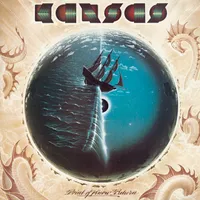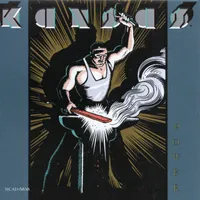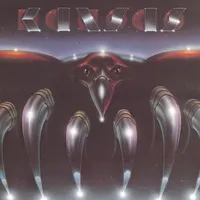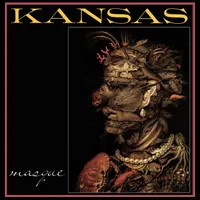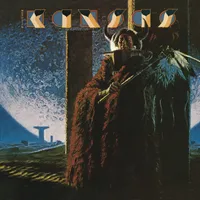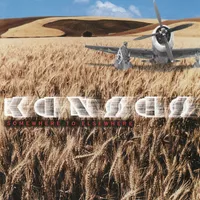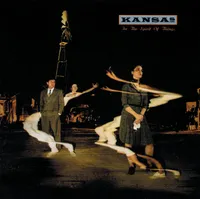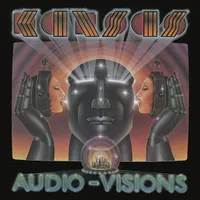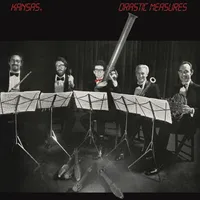The Kansas albums you should definitely own
Kansas were gods of US prog rock in the 70s, until they got Jesus on board and started singing from a different hymn book
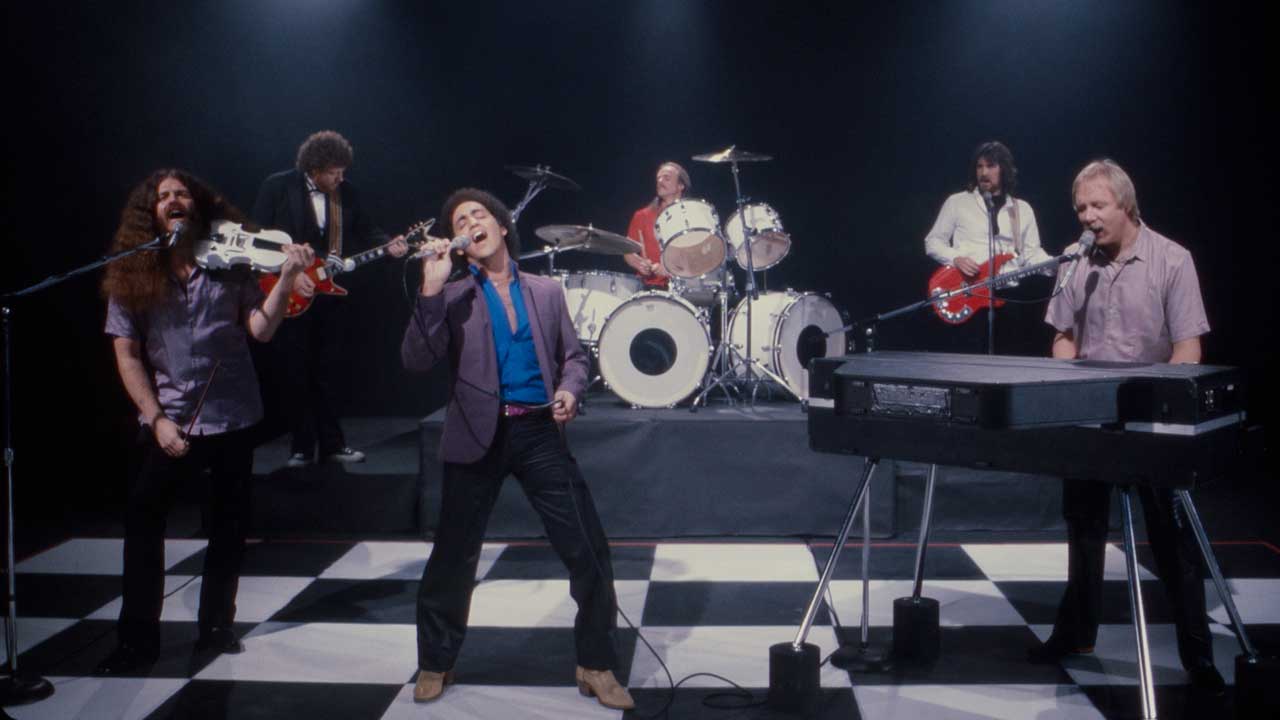
Select the newsletters you’d like to receive. Then, add your email to sign up.
You are now subscribed
Your newsletter sign-up was successful
Want to add more newsletters?

Every Friday
Louder
Louder’s weekly newsletter is jam-packed with the team’s personal highlights from the last seven days, including features, breaking news, reviews and tons of juicy exclusives from the world of alternative music.

Every Friday
Classic Rock
The Classic Rock newsletter is an essential read for the discerning rock fan. Every week we bring you the news, reviews and the very best features and interviews from our extensive archive. Written by rock fans for rock fans.

Every Friday
Metal Hammer
For the last four decades Metal Hammer has been the world’s greatest metal magazine. Created by metalheads for metalheads, ‘Hammer takes you behind the scenes, closer to the action, and nearer to the bands that you love the most.

Every Friday
Prog
The Prog newsletter brings you the very best of Prog Magazine and our website, every Friday. We'll deliver you the very latest news from the Prog universe, informative features and archive material from Prog’s impressive vault.
After having spent time in local groups such as The Reasons Why, White Clover and Proto-Kaw, by the time Kerry Livgren (guitar), Steve Walsh (vocals/keyboards), Robby Steinhardt (vocals/violin), Phil Ehart (drums), Dave Hope (bass) and Rich Williams (guitar) came together as the established Kansas line-up in 1973 it was pretty evident that this Midwestern US rock band were different from the rest.
No other US band throughout the 70s flirted with prog rock like Kansas did. Early Journey were more fusion; Styx, despite initial prog flourishes, had the ballad Lady by 1973; Starcastle were always a bit more pomp rock.
In 1974, debut Kansas hinted at where the band were headed. Then with Song For America and Masque they spread their prog wings with lengthy musical suites that combined melodic rock, orchestral arrangements and odd time signatures. It was 1976’s extraordinary Leftoverture with which Kansas really made their mark, via the US hit Carry On Wayward Son.
The momentum continued with Point Of Know Return and its hit single Dust In The Wind, and by 1978 the band were one of America’s major concert draws. But it didn’t last. As the likes of Journey, Styx and Foreigner embraced AOR, Kansas seemed to be falling behind. Audio-Visions, in 1980, was more AOR in direction and, with Livgren and Hope having converted to Christianity, more religious lyrically.
It was too much for Walsh, who quit. He was replaced by Christian singer John Elefante for Vinyl Confessions and the aptly titled Drastic Measures. Kansas disbanded on New Year’s Eve 1983 at the end of a tour. Walsh, Williams and Ehart regrouped in 1985 with guitarist Steve Morse and bassist Billy Greer for the impressive Power, but the subsequent In The Spirit Of Things was a flop.
By the early 90s Kansas were a lowkey outfit as alternative music held sway. An unstable line-up and lacklustre live albums did little improve things. Then when the original members reunited for 2000’s excellent Somewhere To Elsewhere it was the closest they’d come to recapturing their signature sound of the 70s. More line-up changes followed, and two more albums appeared: 2016's well-received The Prelude Implicit, and 2020's expansive The Absence of Presence.
Still a major touring draw in the US, they remain 70s America’s finest progressive exponents.

Probably the most successful Kansas album ever – having sold more than five million copies since its release – helped hugely by Carry On Wayward Son being a massive hit worldwide. That track’s commercial leaning was somewhat misrepresentative of the Kansas that recorded it, though.
Its FM radio success in the States suggested Kansas were another melodic rock outfit like Foreigner, when in fact they had far more progressive roots. What Leftoverture did was temper their earlier prog flourishes with a slightly harder edge. But the likes of Magnum Opus and Cheyenne Anthem, though, were as pompous as you’d expect.
Point Of Know Return (Epic, 1977)
A good indication of the US music scene in the 70s is that as the punk wars raged in Britain, across the Atlantic Kansas’s pomp-laden prog rock was ruling the roost.
The follow-up to the massively successful Leftoverture was Point Of Know Return, another slice of intuitively melodic rock that again spawned a huge hit single, in this case the emotive Dust In The Wind (more recently used in a series of Butlins TV ads). The opening title track and Portrait (He Knew) upped the pomp quotient, while Livgren’s highly personal closer Hopelessly Human showed an increasingly spiritual slant.
Having called it a day after 1983’s Drastic Measures, Ehart, Walsh and Williams resurrected Kansas in 1985, with bassist Billy Greer and guitarist Steve Morse. A new deal with MCA saw the release of Power, without a doubt the strongest Kansas album since ’77’s Point Of Know Return.
In the hair metal-friendly 80s, the band did indulge some syrupy balladry (All I Wanted was a modest hit). However, there were still elements of the band’s progressive past in both Tomb 19 and Musicatto, while Silhouettes In Disguise, Secret Service and the title track were strong melodic rockers. Kansas’s finest hour in the 80s.
On the back of their 1974 debut, Kansas’s second album went a long way to establishing the band’s progressive credentials. Indeed the 10-minute-plus title track has long been considered the band’s signature tune.
What Song For America does superbly is blend the heavier side of the band with their strong musicality – songs such as Lamplight Symphony and Incomudro – Hymn To The Atman show that the band certainly had the ideas to compete with their flourishing UK prog counterparts. It was also their first album to feature cover art from frequent collaborator Peter Lloyd.
Released later the same year as Song For America, and displaying the kind of serial work ethic that fired the likes of Yes and ELP in the early 70s, Masque is very much a transitional album for Kansas, pitching in between the unbridled excesses of Song For America and the more measured Leftoverture.
This was mainly the result of their label at the time, Kirshner Records, who began to apply pressure for the band to come up with a hit single. None was initially forthcoming, and it is again the lengthier songs on the album that stand out, not least Icarus – Borne On Wings Of Steel and the epic The Pinnacle.
Although not quite as successful as the preceding two Kansas albums, Monolith nevertheless hit the US Top 10. The title refers to the Sioux word ‘Kansa’, from whence the band’s home state took its name. Native American culture had long played a part in the band’s music, and, taken from Monolith, Kerry Livgren’s excellent People Of The South Wind was a hit.
Kansas began the album tour by performing the entire record, but end up performing none of it, believing – wrongly, as it happened – that fans did not like their new work. For Kansas, a wind of change was just around the corner.
Somewhere To Elsewhere (SPV, 2000)
Although Kansas never actually called it quits after their 80s endeavours, they certainly stumbled awkwardly throughout the 90s, with various personnel and ever-diminishing returns. All that changed when the band’s original line-up regrouped for Somewhere To Elsewhere.
Despite Kerry Livgren and Dave Hope’s Christian devotion, which split the band originally, and the former writing all 11 songs, this is a secular album chock-full of earnest prog and hard rock that recalls their Song For America era, even opening with Icarus II. It’s notable that more recent Kansas line-ups have not recorded a new studio album since.
In The Spirit Of Things (MCA, 1988)
Although with 1986’s Power Kansas had resurrected their career somewhat, by the time of the follow-up their label (often ridiculed as the Music Cemetery Of America) had largely lost interest in the band.
A pity, as In The Spirit Of Things was seen by many as the band attempting to recapture their early blend of hard rock and prog, down to the conceptual nature of the album (about a flood wiping out the real Kansas town of Neosho Falls). In fact MCA’s main input on the record was forcing the band’s hand by getting outside writers to write a few (out-of-place) ballads in the hope of getting a quick hit. They failed.
Of the final three albums released by Kansas during their original incarnation, the first, Audio-Visions is the best, retaining stronger links with the classic Kansas sound than either Vinyl Confessions or Drastic Measures, and having less of the overt Christian imagery that guitarist Kerry Livgren was introducing.
It was also the last Kansas album to feature Walsh, who quit over the religious leanings. He was replaced for two albums by the less emphatic John Elefante. Audio-Visions is mainstream melodic rock – the kind of thing Kansas had been falsely accused of indulging in during the 70s. Strange how things turn out.
And one to avoid...
You can trust Louder
The second and final album from Kansas with John Elefante on board is, without a doubt, the one that sounds the farthest away from the band’s original musical intentions. Although the band members had too much integrity for it to have been made in an AOR-by-numbers kind of way, it certainly comes close to sounding like it was.
While the overt Christian sentiments (by now Livgren and bassist Dave Hope held sway in the band) merely come across as cloying, the new direction split the band’s audience and irritated the critics. It was their worst album – although Always Never The Same and Freaks Of Nature were close behind.
Sign up below to get the latest from Classic Rock, plus exclusive special offers, direct to your inbox!
Writer and broadcaster Jerry Ewing is the Editor of Prog Magazine which he founded for Future Publishing in 2009. He grew up in Sydney and began his writing career in London for Metal Forces magazine in 1989. He has since written for Metal Hammer, Maxim, Vox, Stuff and Bizarre magazines, among others. He created and edited Classic Rock Magazine for Dennis Publishing in 1998 and is the author of a variety of books on both music and sport, including Wonderous Stories; A Journey Through The Landscape Of Progressive Rock.

